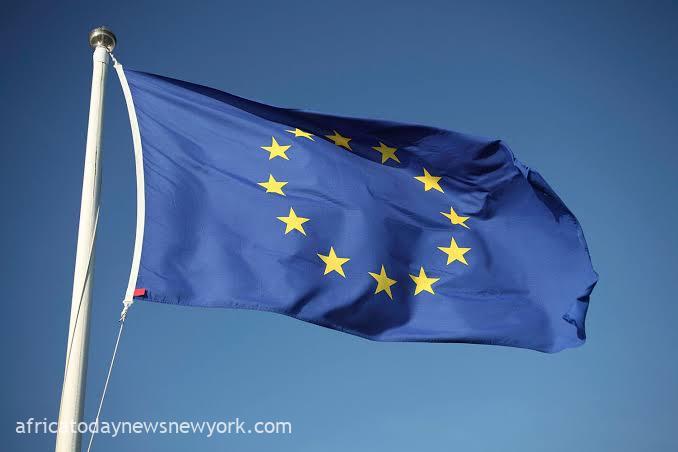On Monday, the European Union‘s visa liberalization plan, eagerly awaited by Kosovo nationals, was implemented, allowing them to traverse Europe’s borderless zone without a visa—an occasion marked by the initial travelers as a momentous relief.
The recently activated regulations, effective from midnight (2300 GMT Sunday), grant Kosovars entry into the passport-free Schengen zone without requiring a visa, allowing stays of up to 90 days in any 180-day span.
Seen from Pristina, the reform is interpreted as an additional milestone on the path to full acknowledgment, providing a significant impetus for the ambitions of a country that declared its independence in 2008 and is actively pursuing European Union membership.
‘This is a great relief … feels good,’ businessman Rushit Sopi told AFP before boarding a Pristina-Vienna flight.
Acknowledged as one of the winners in a government-arranged quiz, he contributed to a public awareness campaign focused on promoting the scheme.
A frequent flyer for business purposes, the 48-year-old owner of a doors and windows manufacturing company routinely travels to the EU.
‘Each visa cost me 300 euros ($331). When I last changed my passport, I calculated that the EU visas alone in it cost me 2,500 euros.’
European embassies in Pristina, notably those exposed to strong pressure to issue visas, such as the German consulate, had prepared for no visa D-Day.
German ambassador Jorn Rohde himself issued the last visas to Kosovars a few days ago stressing that the visa era was “finally closing”.
He also took the opportunity to invite locals to explore his country during the Euro football championship scheduled for this summer.
According to local surveys, Kosovars eagerly awaited January 1, perceiving it as a “historic day” that signifies their country’s advancement toward closer ties with the EU.
However, they pointed fingers at both Brussels and Pristina for the considerable delay in lifting the visa regime.
Kosovo, home to 1.8 million people, attained the visa waiver, concluding the process as the last among the six Western Balkan countries.
Read also: Overhaul In Asylum Policies: EU Introduces Stringent Reforms
‘Until now, Europe has treated us as second-class citizens,’ said engineer Agim Gosalci, 61.
‘Our politicians are also responsible for such a long wait because one of the conditions for visa liberalisation was the fight against corruption and organised crime,’ translator Adelina Kasolli, 33, said.
With average wages at slightly above 400 euros and youth unemployment over 20 per cent, Kosovo ranks among Europe’s poorest countries.
Over the last two months, the government in Pristina has been actively running a campaign, encouraging citizens not to exploit the freedom of travel by seeking employment opportunities in the EU.
At the forefront of the campaign, Prime Minister Albin Kurti traveled extensively throughout the country, personally outlining the advantages of the new regime.
‘This day is important. A great injustice is being removed and a great right is being gained,’ he told the quiz winners at Pristina airport before they flew to Vienna
The prime minister urged Kosovars ‘to respect the criteria, and wherever we travel, let’s not forget that our home is Kosovo.’
His deputy in charge of European integration, Besnik Bislimi, warned against the possible abuse of the regime which could lead to EU restrictive measures that would “harm the entire country”.
There’s a prevailing worry among many that it could exacerbate labor force shortages on an even larger scale.
The Pristina-based Riinvest Institute reports that approximately 18 percent of private sector employees plan to resign and explore emigration opportunities this year.
Sopi, mindful of potential business impacts, shifted his focus to Vienna on Monday, where he escorted his wife on her inaugural journey to an EU nation.
‘The decision (to lift visas) is more than welcome,’ said his wife Valdete.
‘We have family in Germany and Switzerland and it was time to visit them.’
